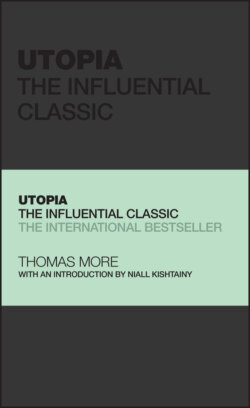Читать книгу Utopia - Sir Thomas More, Thomas More, William Roper - Страница 7
AN INTRODUCTION
ОглавлениеBY NIALL KISHTAINY
In 1516, a book written in Latin was published with the invented word ‘utopia’ in its title: Concerning the Best State of a Commonwealth, and the New Island of Utopia. It described an imaginary place, a good society located somewhere in the New World. The book contained a map of a distant island and a translation of a curious alphabet purportedly used by the islanders. Utopia, as the book became known, was Thomas More's most famous work and one of the most celebrated of Renaissance Europe.
More was not the first to imagine an alternative civilization: Plato did so in his Republic, but More created a literary form that inquired into social conditions using vivid storytelling rather than theory. A poem at the start of the book hails Utopia's vision as surpassing Plato's because it goes beyond the abstract: ‘For what Plato's pen has plotted briefly, In naked words, as in a glass, The same have I performed fully, With laws, with men, and treasure fitly.’
More was born in London in 1478 and spent most of his life in the city. He became a lawyer of great distinction and held a variety of posts before becoming secretary to Henry VIII and in 1529, Lord Chancellor. Today he is remembered for his opposition to the king's divorce from Catherine of Aragon, which led to the break from Rome of the English church.
For refusing to bow to the king's wishes, More was executed in 1535. He became a legendary figure in British history, to many a faultless Catholic martyr. In our secular times, we prefer to view him as a hero of conscience who defended individual belief in the face of tyranny. With Utopia, he is seen as a social prophet whose vision for a better world continues to inspire. More was canonized by the Catholic Church in 1935. In 2000 Pope John Paul II declared him the patron saint of politicians.
